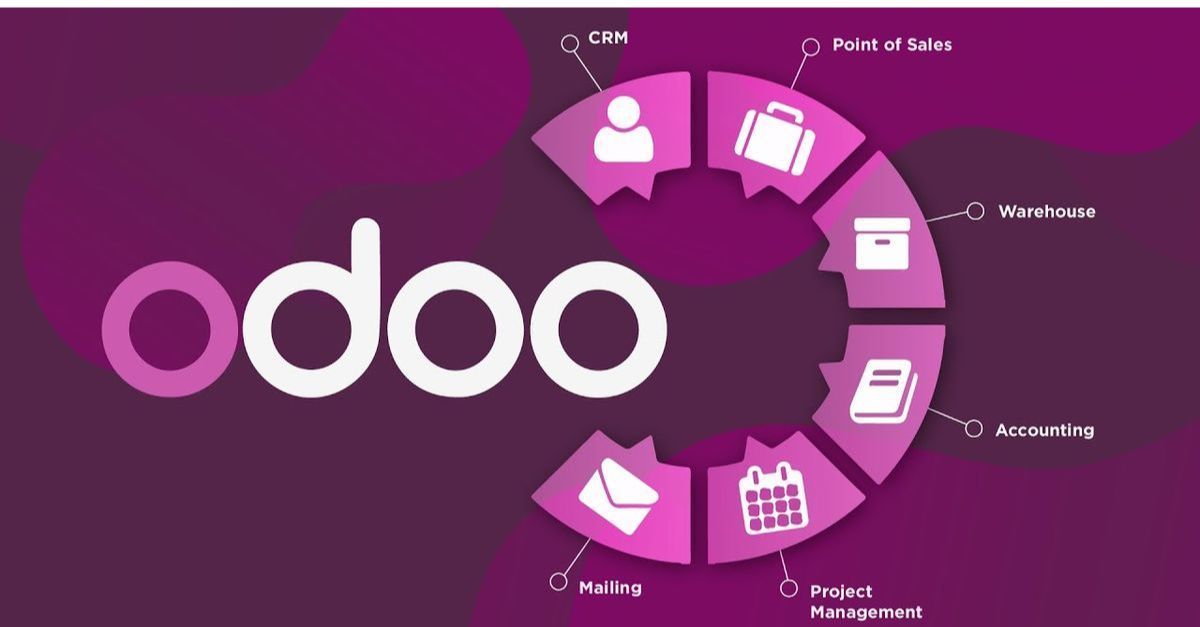By Sudeep Sharma
•
September 2, 2025
In today’s fast-paced business world, Enterprise Resource Planning (ERP) software has become the backbone of organizations, helping streamline operations, reduce inefficiencies, and improve decision-making. Odoo has emerged as a global leader in modular ERP solutions, offering flexibility and scalability across industries. However, in regions like India and the Middle East, Odoo faces strong competition from local and international players such as ERPNext, TallyPrime, Zoho One, SAP Business One, and Compass ERP. This blog explores a detailed comparison of Odoo with these competitors, focusing on features, strengths, and regional suitability to help businesses make the right choice Odoo – The Benchmark ERP Odoo is an open-source, modular ERP platform that offers more than 40 integrated applications covering accounting, CRM, e-commerce, HR, manufacturing, inventory, and more. With both Community (free) and Enterprise (paid) editions, Odoo is highly flexible and can be customized extensively. Strengths Modular approach – businesses can start small and scale. Strong developer community with global adoption. Affordable compared to global giants like SAP or Oracle. Cloud, on-premise, and hybrid deployment options. Limitations Customization may require technical expertise. Enterprise support can be expensive for SMEs. Odoo’s adaptability makes it a strong fit for growing SMEs in India and digitally transforming enterprises in the Middle East. Odoo’s adaptability makes it a strong fit for growing SMEs in India and digitally transforming enterprises in the Middle East. ERPNext – The Indian Open-Source Challenger ERPNext, developed by Frappe Technologies (India), is often called the “Indian alternative to Odoo.” Like Odoo, it is open-source and modular, covering accounting, HR, inventory, projects, and CRM. Strengths Clean, user-friendly interface. Strong support for Indian compliance (GST, TDS). Lower cost of ownership compared to Odoo. Active open-source community. Limitations Smaller ecosystem compared to Odoo. Limited large-scale enterprise adoption. India vs. Middle East Fit In India, ERPNext is popular among startups and SMEs that want open-source flexibility without Odoo’s complexity. In the Middle East, adoption is slower as businesses prefer solutions with multilingual support and stronger enterprise backing. TallyPrime – The Accounting Powerhouse TallyPrime is the successor of Tally ERP, developed by Tally Solutions (India). It is primarily an accounting and compliance-focused ERP with basic inventory and business management features. Strengths Deep penetration in India with a loyal user base. Excellent GST and taxation compliance. Simple and reliable for accounting-driven businesses. Low training curve for accountants. Limitations Limited beyond accounting and inventory. Not ideal for businesses requiring advanced ERP modules (manufacturing, CRM, HR). Outdated UI compared to modern ERPs. India vs. Middle East Fit In India, TallyPrime remains a favorite for SMEs with basic ERP needs and compliance-heavy operations. In the Middle East, it lacks traction due to limited multi-currency, multilingual, and industry-specific features. Zoho One – The All-in-One Suite Zoho One, developed by Zoho Corporation (India/Global), is a suite of over 40 cloud-based applications that include CRM, HR, finance, helpdesk, and collaboration tools. Strengths Cloud-native with seamless integrations. Affordable subscription pricing. Strong CRM and collaboration tools. Quick to implement, low technical overhead. Limitations Limited deep ERP functionality for manufacturing and supply chain. Customization options less extensive compared to Odoo. India vs. Middle East Fit In India, Zoho One appeals to SMEs looking for cloud-first business management without heavy ERP investments. In the Middle East, Zoho’s growing presence is fueled by cloud adoption trends and multilingual support. SAP Business One – The Enterprise-Grade Contender SAP Business One is SAP’s ERP tailored for small and mid-sized enterprises. It offers modules for finance, sales, inventory, manufacturing, and supply chain, with both cloud and on-premise deployment. Strengths Global brand recognition and trust. Robust functionality with scalability. Strong partner and support network in both India and the Middle East. Industry-specific solutions. Limitations Higher cost compared to Odoo, ERPNext, or Zoho. Longer implementation cycles. India vs. Middle East Fit In India, SAP B1 is popular among mid-to-large enterprises aiming for global best practices. In the Middle East, SAP has a strong foothold, especially in oil, construction, and logistics industries. Compass ERP – The Middle Eastern Specialist Compass ERP, developed by Transtek Systems (UAE), is a bilingual ERP system offering modules for finance, HR, CRM, inventory, and procurement. Strengths Bilingual support (Arabic & English). Strong localization for Middle Eastern regulations. Established customer base in UAE, KSA, and GCC markets. Limitations Limited brand recognition outside the Middle East. Smaller global ecosystem compared to Odoo or SAP. India vs. Middle East Fit In India, Compass ERP has minimal presence. In the Middle East, it’s a strong contender due to Arabic support and regional compliance features. Conclusion: Which ERP Should You Choose? For SMEs in India → ERPNext, TallyPrime, or Zoho One may be the most cost-effective choices, with Odoo for those needing scalability. For Enterprises in India → SAP Business One or Odoo are stronger candidates depending on budget and customization needs. For SMEs in the Middle East → Odoo, Zoho One, or Compass ERP provide the right balance of flexibility and localization. For Enterprises in the Middle East → SAP Business One remains the most trusted, while Odoo is a growing alternative with strong customization potential. Ultimately, the decision depends on business size, industry, compliance needs, and budget. Odoo’s modularity makes it versatile, but regional competitors like ERPNext in India and Compass ERP in the Middle East show that localization often wins over global standardization.





